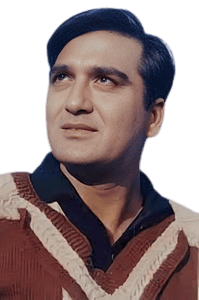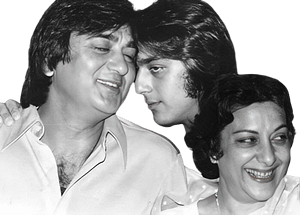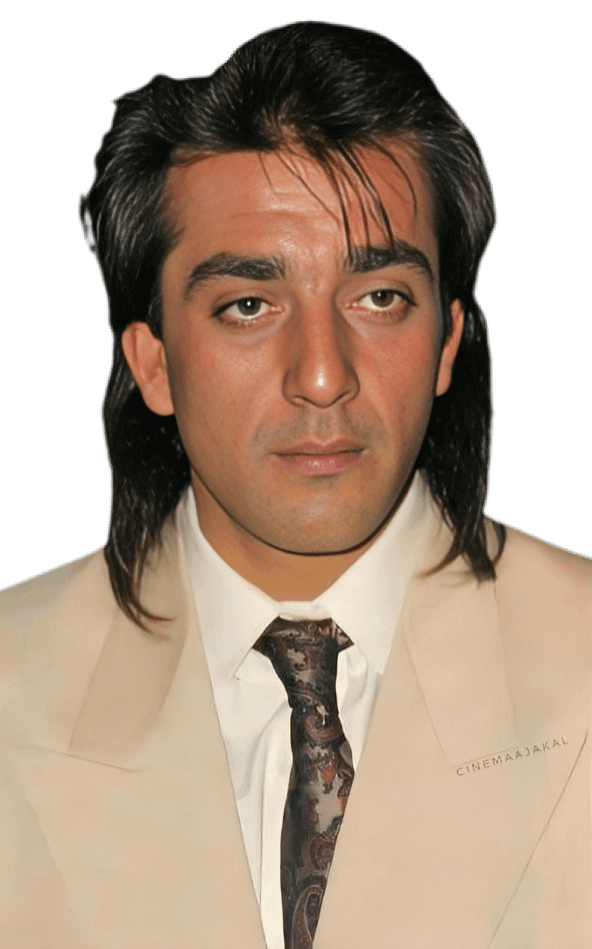Sunil Dutt Life Introduction

Sunil Dutt was a man whose life mirrored the epic drama of the characters he played on screen. Born in the throes of colonial India, maturing in the flames of Partition, and finding his voice in the worlds of cinema and politics, Dutt epitomized courage, compassion, and conviction. His journey from a refugee to a film icon and a respected parliamentarian makes him one of the most admired public figures in India. He was not only a celebrated actor and filmmaker but also a humanitarian, a parliamentarian, and a man of unwavering principles.
Sunil Dutt Early Life and Education
Sunil Dutt was born as Balraj Dutt on June 6, 1929, in Khurd village near Jhelum, now in Pakistan. His father, Diwan Raghunath Dutt, was a government official, and his early childhood was spent in comfort. However, tragedy struck early when his father passed away, and the family’s fortunes declined.
With the Partition of India in 1947, Dutt’s family, like millions of others, was forced to migrate to India amid massive violence and bloodshed. The trauma of Partition deeply affected him and remained a silent driver of his commitment to peace and unity throughout his life.
Settling in Mumbai, Dutt continued his education. He earned a B.A. from Jai Hind College, where his interest in dramatics and public speaking grew. During college, he took part in radio plays and later became a popular voice on Radio Ceylon (now Sri Lanka Broadcasting Corporation), where he hosted the Hindi film program “Lipton Ki Mehfil.”
Sunil Dutt Entry into Films
Sunil Dutt’s good looks and sonorous voice soon caught the attention of the Hindi film industry. He made his film debut with “Railway Platform” (1955) directed by Ramesh Saigal. Though not a huge commercial success, it marked the beginning of a glorious career. His breakthrough came the following year with “Mother India” (1957), one of Indian cinema’s most iconic films.
In “Mother India,” he played Birju, the rebellious son of Nargis, who played the mother. Ironically, in real life, their relationship took a romantic turn, and they married in 1958. Their love story was sealed by a life-changing incident on the sets of Mother India. A fire broke out during the shoot, and Sunil Dutt saved Nargis, suffering burns himself in the process. That act of bravery sparked their lifelong bond.
Stardom and Versatility
Over the next two decades, Sunil Dutt became one of the most respected actors in Indian cinema. He was known for his versatility, grace, and thoughtful choice of roles. He did not conform to the stereotypical hero image and often took on roles that required emotional depth and moral complexity.
Some of his most memorable films include:
- “Sadhna” (1958) – where he played a man who falls in love with a prostitute.
- “Sujata” (1959) – a Bimal Roy classic about caste discrimination.
- “Mujhe Jeene Do” (1963) – where he portrayed a dacoit with a conscience.
- “Waqt” (1965) – a multistarrer film that was among the earliest Bollywood blockbusters.
- “Mera Saaya” (1966) – a suspense thriller that showcased his emotional range.
In 1964, Dutt made a unique film called “Yaadein,” which entered the Guinness Book of World Records for being the only film with a single actor. He wrote, produced, and directed the movie, which was a bold experiment at the time and is still considered a milestone in Indian cinema.
Behind the Camera: Director and Producer
Dutt was not only an actor but also a creative force behind the camera. His foray into direction and production resulted in films with strong social messages. Besides Yaadein, his other notable directorial ventures include:
- “Reshma Aur Shera” (1971) – a tragic love story set in Rajasthan that was India’s official entry to the Oscars.
- “Man Ka Meet” (1968) – a launching pad for Vinod Khanna, showcasing Dutt’s knack for identifying new talent.
Though not all his directorial ventures were box office successes, they were critically acclaimed and revealed his desire to tell stories with depth and integrity.
Personal Life and Marriage to Nargis

Sunil Dutt’s marriage to Nargis was one of Bollywood’s most iconic unions. Despite coming from different religious backgrounds (Dutt being a Punjabi Hindu and Nargis a Muslim), their relationship was built on mutual respect and deep love. Together, they had three children – Sanjay Dutt Namrata, and Priya Dutt.
Their home, Ajanta, became a hub of creativity, warmth, and philanthropy. Nargis and Sunil were devoted to each other and worked together on several charitable initiatives, most notably The Spastics Society of India and the Ajanta Arts Cultural Troupe, which performed in border areas to boost the morale of soldiers.
Tragedy and Transformation
The death of Nargis in 1981 after a prolonged battle with pancreatic cancer devastated Sunil Dutt. She passed away just days before the debut of their son, Sanjay Dutt, in the film Rocky (1981). Sunil Dutt ensured the film was released, even though he was mourning.
Nargis’s passing marked a turning point in his life. Dutt became more involved in social causes, including cancer awareness. He established the Nargis Dutt Foundation, which has contributed to cancer treatment, research, and healthcare facilities across India.
Political Career
In 1984, at the height of his film career, Sunil Dutt entered politics. He joined the Indian National Congress and contested from the Mumbai North-West constituency, a seat he would win multiple times. His image as an honest, compassionate, and selfless man won the hearts of his constituents.
As a Member of Parliament (MP), Dutt was known for his integrity and his active involvement in social issues. He worked tirelessly to improve health care, education, and communal harmony in his constituency and beyond.
In 2004, Dutt was appointed Minister of Youth Affairs and Sports in the Manmohan Singh government. Even in politics, he remained above partisanship and continued to be respected across party lines.
Gandhian Ideals and Peace Walks
In 1987, deeply disturbed by the communal riots and rising terrorism in Punjab and elsewhere, Sunil Dutt undertook a peace march from Mumbai to Amritsar, covering over 2,000 kilometers on foot. He called it a “Shranti Yatra”, inspired by Mahatma Gandhi’s principles of non-violence. He undertook similar marches in different parts of India to promote peace and unity.
These acts cemented his reputation as a genuine advocate for communal harmony and social justice.
The Sanjay Dutt Saga
One of the most emotionally turbulent chapters of Sunil Dutt’s life was his son Sanjay Dutt’s arrest under the Terrorist and Disruptive Activities (Prevention) Act (TADA) in 1993, following the Mumbai bomb blasts. Sanjay was accused of possessing illegal arms.
As a father, Dutt stood by his son through thick and thin, visiting him in jail, pleading his case, and even braving political backlash. Though it took a toll on his health and public image, he never abandoned Sanjay. His efforts contributed to Sanjay eventually receiving bail and restarting his career.
Final Years and Death
Even in his final years, Sunil Dutt remained active in both politics and philanthropy. Despite declining health, he continued to work for cancer patients, communal harmony, and youth development. In 2005, while serving as the Union Minister for Youth Affairs and Sports, he passed away due to a heart attack on May 25, 2005, at the age of 75.
His death was mourned across India. Parliament observed silence, and tributes poured in from leaders across the political spectrum and from the film fraternity. He was cremated with full state honors.
Legacy
Sunil Dutt’s legacy is multifaceted:
- Cinematic Pioneer
He expanded the possibilities of mainstream Hindi cinema, bringing emotional depth, social relevance, and artistic ambition to his roles. His experiment with single-actor cinema (Yaadein) and his directorial efforts left a lasting impact.
- Political Idealist
Unlike many celebrity politicians, Dutt took his political responsibilities seriously. He was deeply respected for his honesty, accessibility, and consistent efforts to uplift the underprivileged.
- Philanthropist and Peace Activist
His walks for peace, his fight against communalism, and his work with the Nargis Dutt Foundation highlighted his Gandhian values and compassion for humanity.
- Devoted Family Man
Sunil Dutt’s personal life was marked by devotion to his family. His support for Sanjay Dutt during his legal troubles reflected his strength as a father.
- National Awards and Recognition
He received numerous accolades during his lifetime, including the Padma Shri (1968) for his contributions to Indian cinema. He was also posthumously awarded the Phalke Ratna Award in recognition of his lifetime achievements.
Conclusion
Sunil Dutt was a rare combination of heart, intellect, courage, and grace. Whether as an actor who brought nuance to every performance, a politician who stood by principles, or a human being who never lost touch with the pain and hopes of ordinary people—he lived a life of purpose.
In remembering Sunil Dutt, we remember a man who chose the harder path of righteousness over fame and popularity. A refugee turned film star, a widower turned humanitarian, a father turned warrior—Sunil Dutt’s life story is not just inspiring; it is deeply human.



